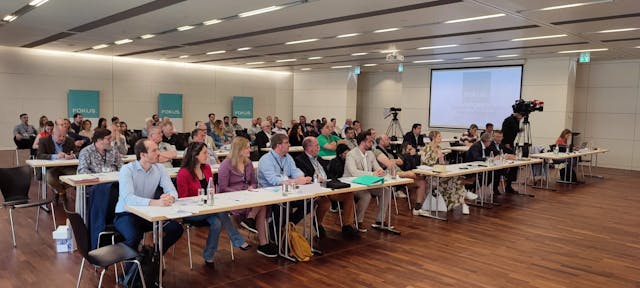Early detection of learning disabilities in Luxembourg: new tools and multilingual diagnosis

Getty Images
On 31 March 2025, the Minister of Education, Childhood and Youth, Claude Meisch, presented an updated national system for the early diagnosis of specific learning needs. This covers impairments such as hearing, speech, motor development, vision and learning disabilities. The system presented is recognised as one of the most effective internationally and is now complemented by new diagnostic tools adapted to the multi-lingual reality of Luxembourg schools.
"We want to identify possible difficulties as early as possible so that every child gets the right support. This is the best way to prevent school failure and to maintain self-confidence," emphasised Minister Claude Meisch. According to him, the earlier a barrier to learning is identified, the more effective action can be taken - both for the pupils themselves, their families and teachers.
Of the eight specialised centres in the field of psycho-pedagogy, several are involved in mandatory screening in public schools.
The Centre de logopédie (Centre de logopédie) works with children from the first year of school to identify possible hearing and speech disorders. Teams of speech therapists and teachers assess students for deviations from the norm.
The Centre for Motor Development (CDM) tests all Cycle 1.2 students annually to identify specific motor skill impairments in a timely manner.
The Centre for the Development of Visual Competences (CDV) and the research structure LUCET have developed an innovative methodology for vision assessment embedded in the national standardised tests (ÉpStan) taking place in Cycle 2.1. The system makes it possible to detect potential visual impairments even before they are formally confirmed.
One of the key innovations is the development of specialised diagnostic tools for dyslexia, dysgraphia and dyscalculia that take Luxembourg's language specificity into account. Previously, the Grand Duchess Marie Therese Centre for Learning (CDA) had to use foreign standardised tests that were not always suitable for the realities of the country.
Together with LUCET, tests have been created that are able to distinguish between language difficulty and a real disorder, which is especially important in a multilingual environment. A child may have difficulties not because of a cognitive impairment, but because the second or third language of instruction is not yet sufficiently mastered for him or her.
The next step will be the introduction of an early identification system for mental health vulnerability. This project, also being developed in partnership with LUCET, aims to spot earlier signs of anxiety, stress and emotional difficulties in pupils. The aim is to offer personalised support and enhance children's mental wellbeing.





